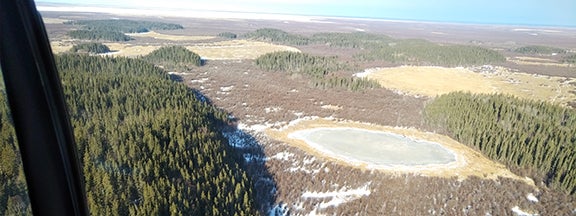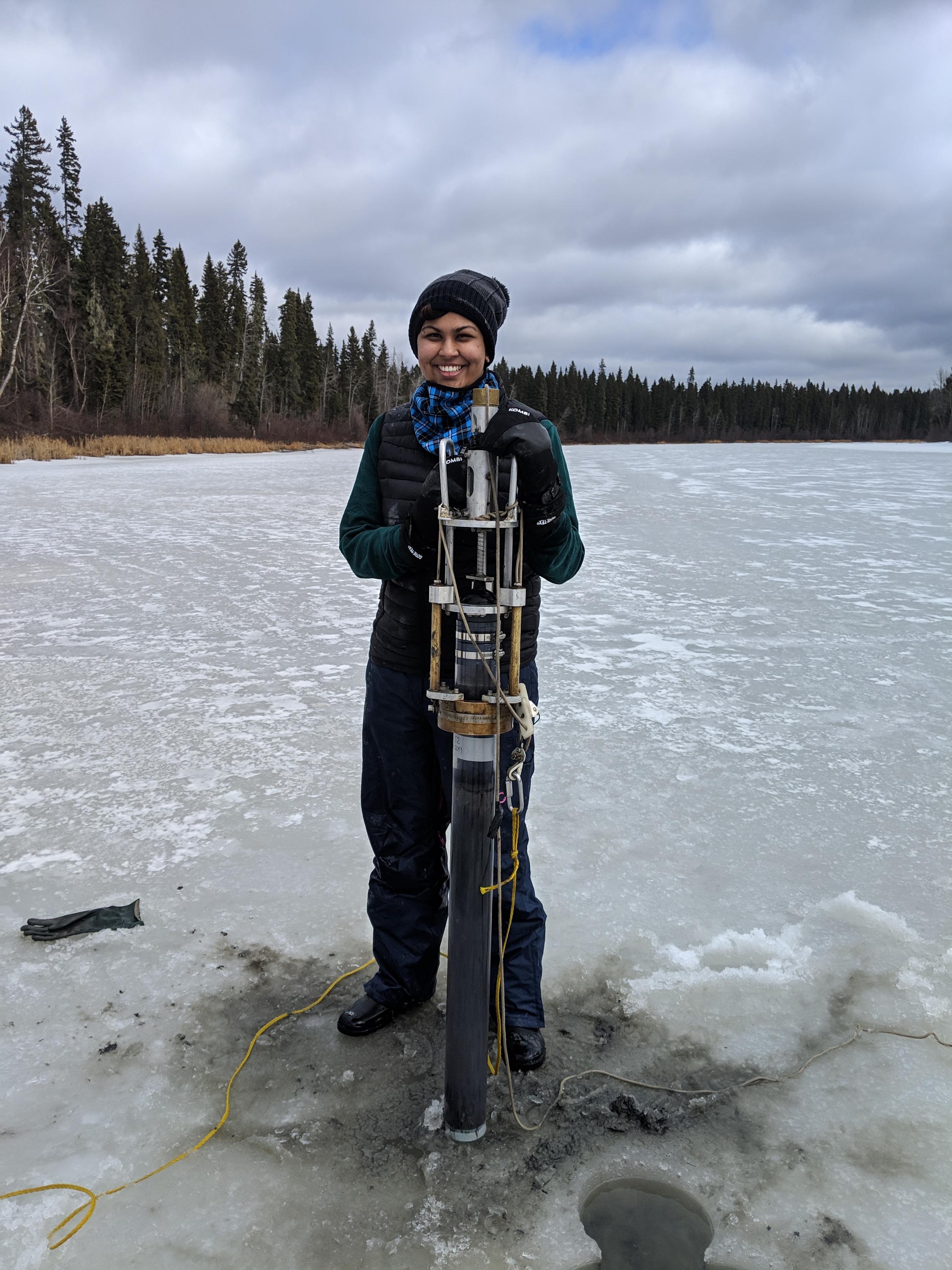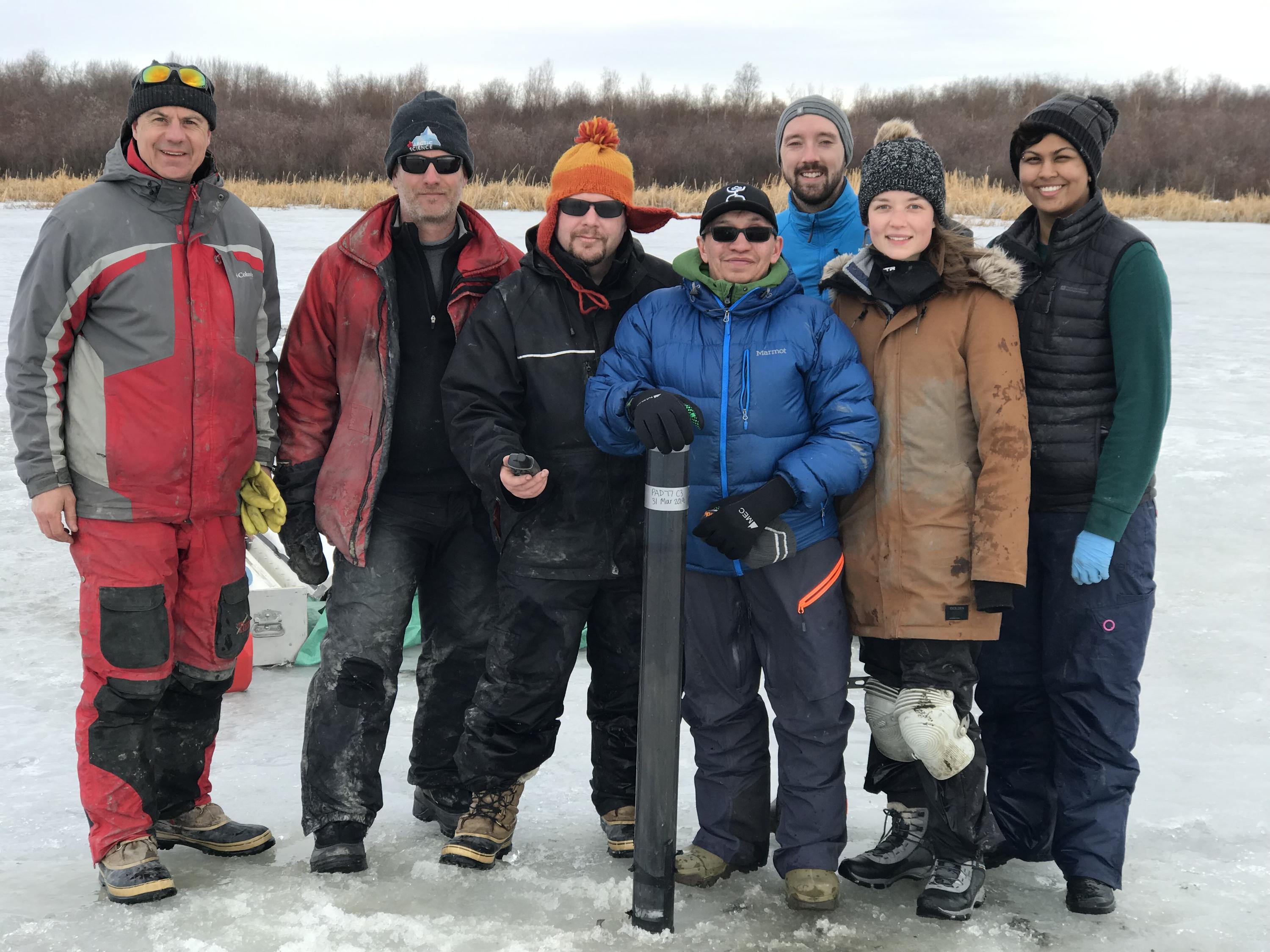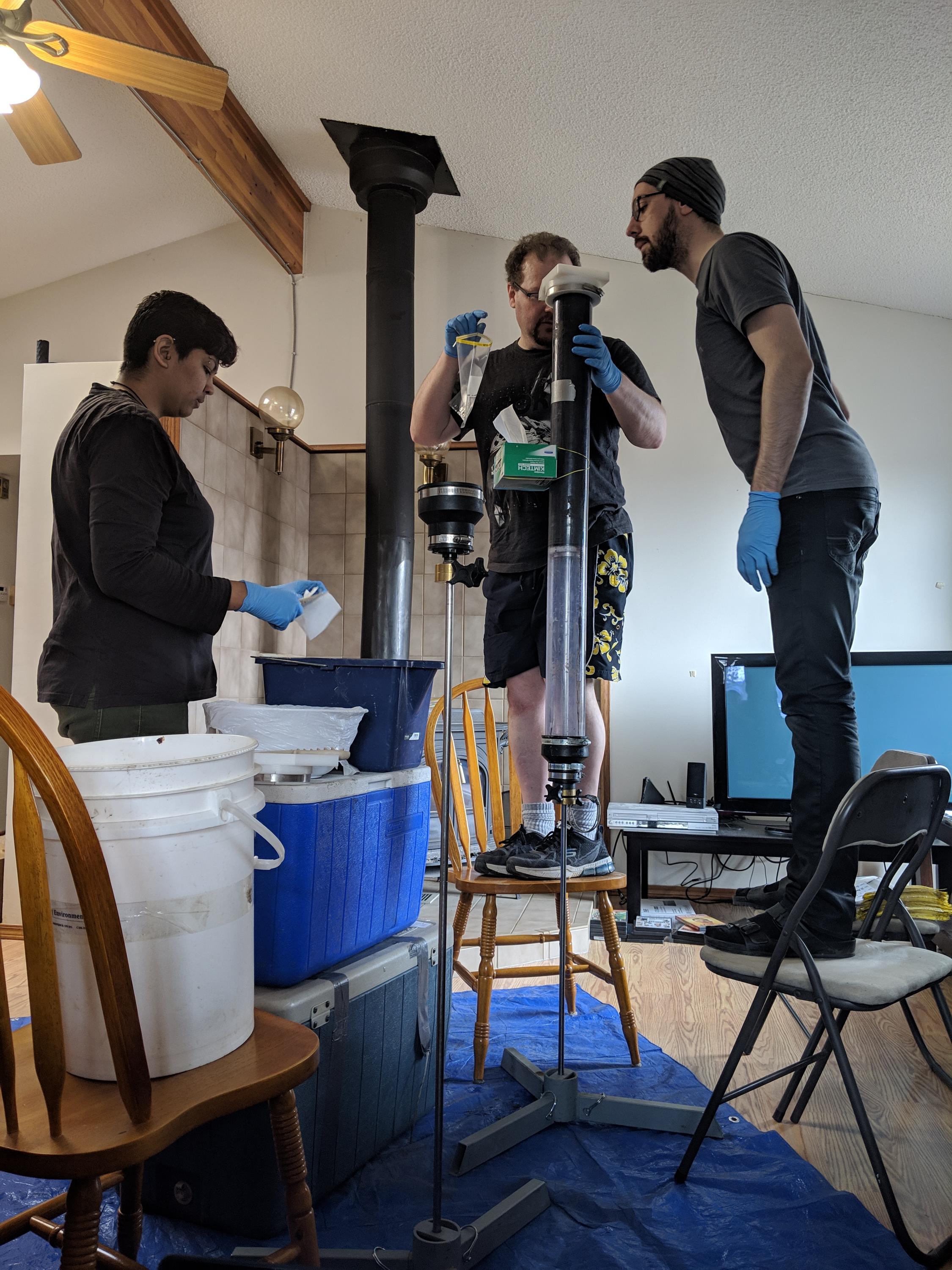
A drying lake. Photo by Robert Magee, Aurora Helicopters
Water Institute member and Professor of Biology, Roland Hall, has been awarded $900,000 from NSERC to study the causes of lake-level decline at Alberta’s Peace-Athabasca Delta. Matched by funding from BC Hydro, the project, “Paleolimnological studies to distinguish the roles of river regulation and climate change on persistent low water levels in the Peace-Athabasca Delta”, will address a long-standing issue in the region. Prof. Brent Wolfe from Wilfrid Laurier University is the co-investigator.
For over 50 years, concerns have grown about the potential linkage between upstream river regulation at the WAC Bennett Dam in British Columbia and observed low water levels in the world-renowned Peace-Athabasca Delta. The issue has re-gained attention since the 2014 petition by the Mikisew Cree First Nation to have Wood Buffalo National Park, which includes the delta, designated on UNESCO’s List of World Heritage in Danger.
“The
project
will
decipher
information
preserved
in
lake
sediment
cores
to
identify
the
timing
and
causes
of
reduced
flooding
and
water
levels
in
the
delta,
while
providing
excellent
training
opportunities
for
research
students
in
environmental
science.
It
addresses
a
deep-rooted
and
important
environmental
challenge
for
Canada,
and
will
provide
valuable
input
into
an
Action
Plan
and
policy
being
developed
by
Parks
Canada
and
Environment
and
Climate
Change
Canada”.
- Professor
Roland
Hall,
Water
Institute
member
and
Professor
of
Biology
The study will use physical, chemical, and biological information preserved in sediment profiles to reconstruct past environmental conditions spanning several centuries. It builds on prior studies led by Profs. Hall and Wolfe during the early 2000s. The recently announced project will bring forward paleoenvironmental reconstructions from the earlier work, adding 18 years of record, and expanding spatial coverage to address the respective roles of climate and river regulation on environmental change. Specific activities will include:
- Update and extend the records of previously cored lakes;
- Reconstruct paleohydrologic conditions on three new lakes of particular relevance and interest to local First Nations residents and park managers;
- Reconstruct hydrologic records for several flood prone lakes to assess for evidence of past directional change;
- Reconstruct paleohydrologic conditions for several reference lakes outside of the delta;
- Reconstruct paleohydrologic conditions for several lakes in the unexplored northwest sector of the delta;
- Assess if the lake drying in the Peace-Athabasca Delta corresponds with past changes in delivery of spring snowmelt from two upstream unregulated watersheds identified as key “trigger” tributaries of ice-jam floods at the delta.



(L) MSc student Anita Ghosh with a 90 cm long sediment core collected with a hammer –driven gravity corer
(M) field team (left to right: Roland Hall, Brent Wolfe (Co-PI, WLU), Johan Wiklund (Research Associate), Kevin Marten (Mikisew First Nation Community-Based Monitoring program & Environment and Climate Change Canada), Nelson Zabel (Research Technician), Cory Savage (MSc student), Anita Ghosh (MSc student)
(R) Processing the sediment core at the field base in Fort Chipewyan (Research Associate Johan Wiklund; MSc student Anita Ghosh; Research Technician Nelson Zabel)